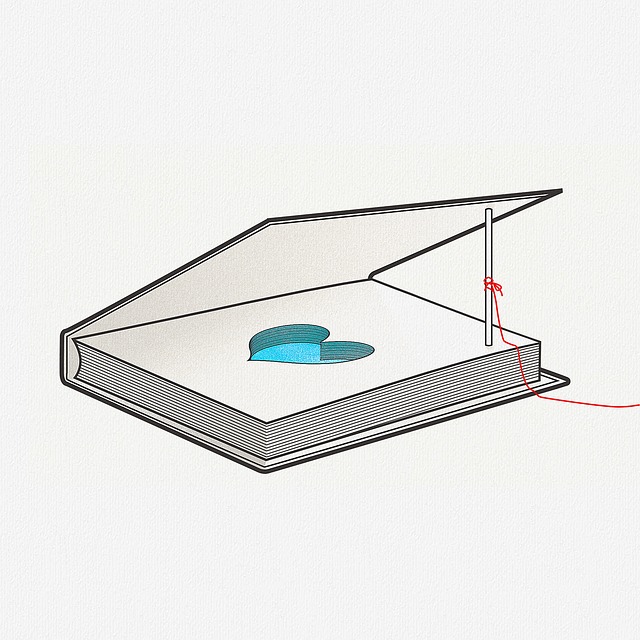Discover the truth behind veneers and their impact on your oral health. In this article, we debunk common myths and provide clear, confident answers.
1. Separating Fact from Fiction: The Truth about Veneers and Tooth Health
When it comes to veneers and tooth health, it’s important to separate fact from fiction to make informed decisions. Let’s debunk common myths and shed light on the truth:
1. Veneers ruin natural teeth: This is a common misconception. Veneers are designed to enhance the appearance of teeth without compromising their health. In fact, they can protect teeth by providing an extra layer of strength and durability.
2. Veneers are only for cosmetic purposes: While veneers are often used for cosmetic reasons, they can also address certain dental issues. They can help repair chipped or cracked teeth, close gaps between teeth, and even improve the alignment of slightly misaligned teeth.
3. Veneers require extensive tooth preparation: Contrary to popular belief, the amount of tooth preparation needed for veneers is minimal. In most cases, only a thin layer of enamel is removed to make space for the veneer. This ensures a comfortable and natural fit.
4. Veneers are easily noticeable: With advancements in dental technology, veneers now look incredibly natural. They can be customized to match the color, shape, and size of your natural teeth, making them virtually indistinguishable.
5. Veneers are permanent: While veneers are a long-term solution, they may need to be replaced after a certain period of time. With good oral hygiene and regular dental check-ups, veneers can last for many years, but it’s important to be prepared for eventual replacement.
6. Veneers require special care: In reality, maintaining veneers is quite simple. Treat them like your natural teeth by brushing twice a day, flossing regularly, and visiting your dentist for check-ups. Avoid biting down on hard objects or using your teeth as tools, as this can potentially damage the veneers.
2. Understanding Veneers: Dispelling the Myths Surrounding Dental Veneer Treatment
When it comes to dental veneer treatment, there are several misconceptions that can create unnecessary concerns or misunderstandings. Let’s debunk these myths and provide you with accurate and reliable information about veneers:
- Myth 1: Veneers are only for cosmetic purposes: While veneers are primarily known for their cosmetic benefits, they also offer functional advantages. They can improve the shape and alignment of your teeth, repair chipped or broken teeth, and even provide a protective layer for damaged enamel. So, veneers not only enhance your smile but also contribute to overall dental health.
- Myth 2: Veneers are fake-looking: This couldn’t be further from the truth. With advancements in dental technology, veneers are now designed to look incredibly natural. Dentists carefully select the shade and shape of the veneers to match your existing teeth. Additionally, they mimic the translucent quality of natural teeth, ensuring that your smile looks authentic and undetectable.
By dispelling these myths, we hope to assure you that dental veneer treatment is a reliable and effective option for enhancing the appearance and function of your teeth. Whether you’re considering veneers for aesthetic reasons or to address certain dental issues, it’s essential to consult with a qualified dentist who can provide personalized advice and guide you through the process.
3. Myth #1: Veneers Cause Irreversible Damage to Teeth – Debunked!
One of the most common concerns people have about veneers is the belief that they cause irreversible damage to teeth. Let us put your worries to rest by debunking this myth once and for all.
1. Minimal Enamel Removal: While it is true that a thin layer of enamel needs to be removed to make space for the veneers, this is a minimal amount and typically only about 0.5mm. Skilled dentists ensure that this removal is done conservatively, preserving as much healthy tooth structure as possible.
2. Reversibility: Contrary to popular belief, veneers are not a permanent solution. They can be replaced or removed if needed, and the underlying teeth will remain intact. It’s important to note that proper oral hygiene and regular dental visits are essential to ensure the longevity of your veneers.
4. Setting the Record Straight: How Veneers can Actually Improve Dental Health
Many people believe that veneers are solely used for cosmetic purposes, but the truth is that veneers can actually improve dental health in a number of ways. While veneers do enhance the appearance of your smile, they also offer several benefits that can help improve the overall health of your teeth and gums.
1. Enhances Tooth Strength: Veneers provide an added layer of protection to the natural tooth, increasing its strength and durability. This can be especially beneficial for individuals with weakened or worn-down teeth, as veneers can help prevent further damage and reduce the risk of tooth fractures or chips.
2. Resolves Tooth Sensitivity: If you experience sensitivity due to worn enamel or receding gums, veneers can help alleviate this discomfort. By covering the exposed surfaces of the teeth, veneers act as a barrier, reducing sensitivity to hot, cold, or acidic foods and beverages.
5. The Science Behind Veneers: Unraveling the Notion of Tooth Ruin
Veneers are a popular cosmetic dentistry solution that can dramatically enhance a person’s smile. To fully appreciate the benefits of veneers, it is crucial to understand the science behind them and debunk any misconceptions about tooth decay. Contrary to common belief, veneers do not cause tooth ruin, but rather serve as a protective layer to strengthen and enhance the appearance of your natural teeth.
The process of applying veneers involves the meticulous preparation of the tooth’s surface, where a thin layer of enamel is gently removed. This is done to ensure a seamless fit for the veneer, which is custom-made to match the shape and color of your teeth. The veneer itself is made of durable dental ceramic material, designed to mimic the natural look of your teeth while providing an additional layer of protection.
- Strengthens Tooth Structure: Despite the small amount of enamel removal, veneers actually strengthen your teeth by adding an extra layer of fortification. This protective layer helps prevent tooth decay, chipping, and fractures, making your teeth more resilient in the long run.
- Improved Aesthetics: By using veneers, you can easily mask various dental imperfections such as discoloration, misalignment, or gaps, achieving a flawless smile that boosts your confidence.
- Minimal Sensitivity: Although the enamel removal process may cause temporary sensitivity, it is usually minimal and well-tolerated. Moreover, veneers themselves are non-porous, making them resistant to stains and minimizing sensitivity to hot or cold foods and beverages.
Understanding the science behind veneers helps debunk the misconception of tooth ruin associated with this cosmetic dental procedure. Veneers not only enhance the aesthetics of your smile but also strengthen your teeth, providing long-lasting benefits and minimal sensitivity. Consult with your dentist to determine if veneers are the right option for you and begin your journey towards a picture-perfect smile.
6. Exploring the Benefits: How Veneers Enhance Dental Aesthetics and Functionality
When it comes to improving your dental aesthetics and functionality, veneers offer a fantastic solution. These thin shells are custom-made to fit perfectly over your natural teeth, instantly transforming your smile. But the benefits of veneers go beyond just aesthetics, as they also enhance the functionality of your teeth. Here’s how:
1. Enhanced Appearance: Veneers can address a range of cosmetic issues, including chipped, stained, or misaligned teeth, giving you a picture-perfect smile. They are available in a variety of shades, allowing you to achieve the exact color and shape you desire.
2. Natural Look: One of the key advantages of veneers is their ability to mimic the appearance of natural teeth. The porcelain material used in their construction reflects light in the same way as tooth enamel, resulting in a seamless and realistic look.
- 3. Stain Resistance: Veneers are highly resistant to stains, helping you maintain a bright and beautiful smile for years to come. Say goodbye to worrying about coffee, tea, or red wine staining your teeth.
- 4. Durability and Longevity: With proper care and maintenance, veneers can last for many years, making them a worthwhile investment. They are also resistant to chipping and breaking, giving you peace of mind in your day-to-day activities.
- 5. Protect Tooth Enamel: Veneers require minimal preparation of your natural teeth, preserving your tooth enamel. Unlike dental crowns, which require the removal of a significant portion of your tooth structure, veneers adhere to the front surface of your teeth, ensuring their strength and integrity.
With their ability to enhance both the aesthetics and functionality of your smile, it’s no wonder that veneers have become an increasingly popular choice for individuals seeking a stunning and confident smile. Discover the transformative benefits of veneers and achieve the smile you’ve always wanted.
7. Debunking the Stigma: Veneers as a Safe and Effective Dental Solution
The stigma surrounding veneers is often rooted in misinformation and misconceptions. However, it’s important to debunk these myths and understand that veneers can be a safe and effective dental solution for a variety of dental issues.
One of the misconceptions surrounding veneers is that they damage natural teeth. In reality, veneers are designed to fit over the surface of the teeth without causing any harm. They are custom-made to match the shape, size, and color of your natural teeth, providing a seamless and natural-looking result. Additionally, porcelain veneers are resistant to stains, maintaining their original appearance for years to come.
- Another common myth is that veneers require extensive tooth preparation. This is not the case for all veneer procedures. Minimal tooth preparation is often sufficient, as the veneers are specifically designed to be thin and lightweight. This means that only a small amount of enamel needs to be removed from the front surface of the tooth, preserving the natural structure.
- Contrary to popular belief, veneers are not only for cosmetic purposes. While they do enhance the appearance of your smile, they can also be used to address other dental issues. Veneers can effectively cover chipped or cracked teeth, disguise gaps between teeth, and improve the overall alignment of your smile. They provide a versatile solution for a range of dental concerns.
- Lastly, veneers are a long-lasting dental solution. With proper care and maintenance, they can last for many years. Regular dental check-ups and good oral hygiene practices are essential to maintain the longevity of your veneers.
It’s important to consult with a qualified dentist to determine if veneers are the right choice for you. They can assess your dental condition and provide personalized recommendations based on your unique needs. Remember, veneers can greatly improve both the appearance and functionality of your teeth, helping you achieve the smile you’ve always desired.
8. Professional Insights: Expert Opinions on the Effects of Veneers on Tooth Structure
Veneers are a popular cosmetic dental treatment, but what impact do they have on tooth structure? We consulted several experts in the field to gain professional insights on this matter. Here’s what they had to say:
- Dr. Sarah Evans, a renowned prosthodontist, emphasizes that veneers are a minimally invasive procedure. She explains that only a small amount of enamel is removed before placing the veneer, ensuring the preservation of natural tooth structure. Dr. Evans further emphasizes that the bonding process used to affix veneers to teeth actually strengthens the overall tooth structure, reducing the risk of fractures or chipping.
- Dr. Mark Roberts, a leading cosmetic dentist, shares a similar perspective. He highlights that advancements in dental technology have allowed for the creation of ultra-thin veneers. As a result, minimal enamel removal is required, leaving more of the natural tooth intact. Dr. Roberts also commends the veneer’s ability to improve tooth structure by providing an additional layer of protection from external factors such as staining and acids.
These expert opinions reassure us that veneers not only enhance the appearance of a smile but also have a positive impact on tooth structure. By preserving natural tooth structure and providing added protection, veneers can be a reliable solution for individuals seeking a beautiful and healthy smile.
9. Debunking Misconceptions: Common Concerns Addressed about Veneers and Tooth Health
Veneers are a popular cosmetic dental treatment, but it’s common for concerns to arise about their effect on tooth health. Let’s address some misconceptions and provide clarity:
1. Veneers damage your natural teeth: This is a myth. When veneers are properly applied by a skilled dentist, they do not harm the underlying teeth. In fact, they can provide additional protection to teeth that are weakened, worn down, or chipped. Dentists ensure that the enamel is prepared minimally, often requiring only slight reshaping to accommodate the veneers.
2. Veneers cause tooth sensitivity: While it’s normal to experience a temporary increase in sensitivity after getting veneers, it usually subsides within a few days. Advances in dental technology and the use of high-quality materials have greatly reduced the chances of prolonged sensitivity. Dentists also take care to customize each veneer to fit perfectly, reducing any potential discomfort.
10. Weighing the Pros and Cons: Understanding the Potential Impact of Veneers on Tooth Enamel
When considering getting veneers, it’s important to weigh the pros and cons, especially when it comes to the potential impact on tooth enamel. Here, we’ll delve into the advantages and disadvantages of veneers, so you can make an informed decision before proceeding with this dental treatment.
- Pros:
- Enhanced appearance: Veneers can dramatically improve the aesthetics of your smile by correcting various dental imperfections, such as discoloration, chips, or misalignment.
- Fast and efficient solution: Unlike other dental procedures, veneers can provide you with a noticeable transformation in just a few visits to the dentist.
- Minimally invasive: The placement of veneers typically involves minimal removal of tooth enamel, promoting long-term dental health.
- Durability: Porcelain and composite resin veneers are highly durable and can withstand everyday activities like eating and speaking, providing long-lasting results.
- Cons:
- Irreversible procedure: Once your enamel is removed to accommodate veneers, it cannot grow back. This means that veneers are a lifelong commitment.
- Sensitivity: Some individuals may experience increased tooth sensitivity after getting veneers, particularly to hot or cold substances.
- Potential damage: While resilient, veneers may still be susceptible to chipping or cracking, especially if you engage in habits like biting your nails or grinding your teeth.
- Care requirements: Maintaining the longevity of veneers requires conscientious oral hygiene, regular dental visits, and avoiding certain behaviors, such as biting on hard objects or using your teeth as tools.
In conclusion, debunking the myths surrounding veneers reveals that they do not ruin your teeth. Veneers provide an effective solution for enhancing your smile with minimal risks. Remember, proper oral hygiene and regular dental check-ups are key to maintaining the longevity of your veneers. Don’t let misconceptions hold you back from achieving the smile you desire!






